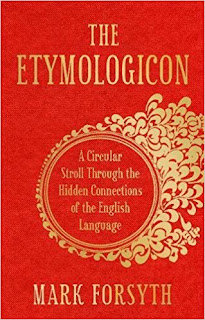So I came back from Romania with lots of ideas bubbling in my head and I needed to get in the mood to get back into writing horror (it's been years since the last horror story!). I've read pretty much everything Stephen King has written but I remembered I had this book stored in my Kindle I hadn't written yet and, oh surprise, it was recommended by King.
I didn't read this one while I was on my way to anywhere exotic. I was in the comfort of my home and summertime in southern Spain allowes space for A LOT of reading. What else can you do if it's no less than 40 Celsius Degrees outside from early morning to almost midnight?
Title: The parasite
Author: Ramsey Campbell
Genre: Horror
Format: Ebook
Blurb: Rose Tierney and her husband Bill are successful writers, picking apart films and enlightening the masses. They
are invited to New York to talk business and get invited to a party
where one of the guests, a quiet Diana, is interested in the occult.
Bill has a tarot card reading and dismisses it out of hand, but when
it’s Rose’s turn, it sparks something in her.
That night, she has an odd out-of-body experience and is attacked by an unknown force. Diana, through a premonition, found Rose and helped her back to her apartment to recover. The assault seems to waken her dormant psychic powers, and Diana excitedly encourages Rose to pursue them, to learn how to master them.
Rose quickly begins experiencing premonitions and discovers that her self can leave her body, later discovering all the intricacies of astral projection. At first frightened by her newfound powers, she soon begins to explore, both her own abilities and the world that they belong to.
She soon discovers that her sinister feeling greenhouse, Hitler and the Nazis, and her quiet hometown all seem to have something in common. As her powers grow, her relationships with those around her grow increasingly turbulent. Rose Tierney is no longer alone in her own body, and her newfound powers belong not to her, but to that Other.
The evil seed that was planted in Rose twenty years ago is about to flower.
That night, she has an odd out-of-body experience and is attacked by an unknown force. Diana, through a premonition, found Rose and helped her back to her apartment to recover. The assault seems to waken her dormant psychic powers, and Diana excitedly encourages Rose to pursue them, to learn how to master them.
Rose quickly begins experiencing premonitions and discovers that her self can leave her body, later discovering all the intricacies of astral projection. At first frightened by her newfound powers, she soon begins to explore, both her own abilities and the world that they belong to.
She soon discovers that her sinister feeling greenhouse, Hitler and the Nazis, and her quiet hometown all seem to have something in common. As her powers grow, her relationships with those around her grow increasingly turbulent. Rose Tierney is no longer alone in her own body, and her newfound powers belong not to her, but to that Other.
The evil seed that was planted in Rose twenty years ago is about to flower.
The story
I loved the blurb —didn't you?—. I mean, out-of-body experiences, seances, psychi powers... what's not to love? The book begins with a prologue chapter that leaves you longing for more. We are introduced a story where a group of kids are playing around with a ouija board in an abandoned house where strange things began to happen and a girl is left locked up with an unknown force.
Of course, after that, you want to devour chapter after chapter, right? However, although at the beginning we always face a book with patience —we must get to know the characters a little first—, in this case, the author is asking for too much of it. I kept reading and reading and the story felt dull and filled up with extra information and words we really didn't need. I lost interest in the characters and that's a no-no when it comes to storytelling.
The characters
I feel, in this aspect, the author had a great chance to catch the reader's attention. We are presented with three very interesting characters: Rose Tierney, a writer who discovers she might have some kind of psychic powers as she experiences some strange things after meeting Diana, a tarot reader she met at a party. She will open a door to the occult for Rose and bring up some ghosts from the past. Bill is Rose's husband, a succesful writer who refuses to believe there's anything paranormal in what happens to Rose. The relationship between husband and wife could have been explored much deeply, but in my opinion, was only barely touched in order to serve the plot.
The style
Why do I read so many books whose authors are brilliant at writing but horrible at storytelling? The author describes the scene in a perfect way: not too much, not too little. He's also quite good at developing dialogues, although there was too long conversations on the history of films. This is the first book I've read by Ramsey Campbell and I've heard his short stories are great so it might be that this book was meant to be a short story but was artificially extended to fit into a novel?
My opinion
I'm saddened to say I didn't like this book at all. It was very hard to keep reading and holding up for something interesting to happen. I had a lot of expectations since it was recommended by my all time favorite author Stephen King, but it didn't do it for me. The story is slow and empty; I didn't find the elements of a horror story that make you look behind you or flinch at the creak of furniture.

















